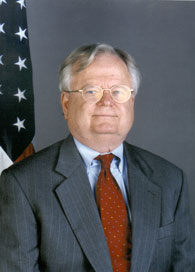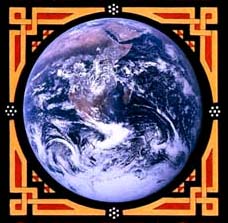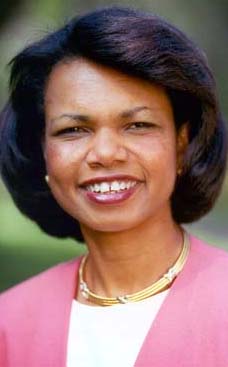2006.03.02: March 2, 2006: Headlines: Figures: COS - Malawi: Diplomacy: National Security: Harvard University: Robert Blackwill, former U.S. ambassador to India, called for further strengthening the ties between the two countries
Peace Corps Online:
Directory:
Malawi:
RPCV Robert Blackwill (Malawi) :
Special Report: Diplomat, National Security Advisor, and Malawi RPCV Robert Blackwill:
2006.03.02: March 2, 2006: Headlines: Figures: COS - Malawi: Diplomacy: National Security: Harvard University: Robert Blackwill, former U.S. ambassador to India, called for further strengthening the ties between the two countries
Robert Blackwill, former U.S. ambassador to India, called for further strengthening the ties between the two countries

"Prime Minister [Shri Atal Bihari] Vajpayee, the previous Indian prime minister, said famously in an address to Congress five years ago that the United States and India are 'natural allies' - a phrase which remains quite controversial in India," Blackwill said. "But for myself, I think it appropriately describes the long-term character of this relationship." Robert Blackwill served as a Peace Corps Volunteer in Malawi, Ambasssador to India, and as a Deputy National Security Advisor to Condoleezza Rice.
Robert Blackwill, former U.S. ambassador to India, called for further strengthening the ties between the two countries
Blackwill speaks of 'natural allies'
Former ambassador speaks on India's relations with the U.S., Pakistan, and others
By Rob Meyer
Kennedy School Communications
Robert Blackwill, former U.S. ambassador to India, called for further strengthening the ties between the two countries during a discussion at the Kennedy School Forum Monday night (Feb. 27). Blackwill's forum appearance came as President Bush prepared to travel to India this week for meetings with top Indian leaders.
View video archive of event
"Prime Minister [Shri Atal Bihari] Vajpayee, the previous Indian prime minister, said famously in an address to Congress five years ago that the United States and India are 'natural allies' - a phrase which remains quite controversial in India," Blackwill said. "But for myself, I think it appropriately describes the long-term character of this relationship."
Ambassador from 2001 to 2003, Blackwill said that no other country in the world today shares as many vital national interests as India does with the United States, and he elaborated on five areas where this common bond is most prevalent: prosecuting the global war on terror; preventing the spread of weapons of mass destruction; dealing with the rise of Chinese power; ensuring the reliable supply of energy from the Persian Gulf; and keeping the global economy growing.
In addition, Blackwill talked about shared democratic values. "The U.S. and India operate from the same solid moral foundation," he said.
Blackwill also spoke of America's popularity in India, citing a study that measured opinion toward America worldwide. India has a 71 percent "favorable attitude" toward the United States - the highest rating of any country. "I don't think Cambridge could produce such a number," said Blackwill, who taught at the Kennedy School for more than a decade before being named ambassador.
On the economic side, India today is divided into "two Indias," Blackwill said. One, a growing economic power with a middle class of 200 million to 300 million that has brought 100 million out of poverty in the past decade. And another, a nation that has 40 percent of the world's poorest people, a female literacy rate of 54 percent, and an increasing HIV/AIDS epidemic.
"There is no doubt that the Indian political elite thinks that its most important task in the period ahead," Blackwill said, "is bringing these millions and millions out of poverty and into the mainstream of Indian life."
Also in this issue
Pakistan critical to South Asia stability
Regarding current diplomatic efforts with India, Blackwill praised the high-profile agreement of July 18, 2005, on civil nuclear cooperation between the two countries, while admitting that it is a "radical departure" from previous American foreign policy, which had cast India outside the international nuclear family for 30 years.
"I think it is no surprise that this agreement is opposed by skeptics in both nations," Blackwill said. "Path-breaking international agreements of this magnitude always provoke opposition.
"Bureaucrats resist because they intrinsically want to think and do tomorrow what they thought and did yesterday," he said. "Statesmanship requires visionary leaders to make tough choices and demonstrate political will."
On current India-Pakistan relations, Blackwill paid tribute to the leadership shown from Pakistan's President Gen. Pervez Musharraf, and Indian Prime Ministers Vajpayee and Manmohan Singh.
"Just remember, four years ago, about this time we almost had the first war in human history between two nuclear weapon states," said Blackwill, who was ambassador at that time. "And we were, in my judgment, within 72 hours of the initiation of large scale military hostilities."
Today, Blackwill said, relations between India and Pakistan are the best since the partition of the two countries in 1947. "And that's because of two Indian prime ministers and one Pakistani president."
Also taking part in the forum was Xenia Dormandy M.P.P. '01, executive director for research at the Kennedy School's Belfer Center for Science and International Affairs. She said that despite the wide attention the civil nuclear agreement is getting in both countries, it isn't the only issue at hand.
"What I think is most important is the rest of the relationship," said Dormandy, past director for South Asia at the National Security Council, where she played a key role in coordinating the visit of Singh to Washington that resulted in the July 18 agreement.
In the next two to five years, Dormandy said, whether or not the civil nuclear deal goes through, the United States and India will continue to forge strategic partnerships in areas such as security and defense, economics, and science and technology, especially in the area of the biotechnology.
The event was moderated by Kennedy School Dean David Ellwood.
rob_meyer@ksg.harvard.edu
When this story was posted in March 2006, this was on the front page of PCOL:





Peace Corps Online The Independent News Forum serving Returned Peace Corps Volunteers
 | History of the Peace Corps
PCOL is proud to announce that Phase One of the "History of the Peace Corps" is now available online. This installment includes over 5,000 pages of primary source documents from the archives of the Peace Corps including every issue of "Peace Corps News," "Peace Corps Times," "Peace Corps Volunteer," "Action Update," and every annual report of the Peace Corps to Congress since 1961. "Ask Not" is an ongoing project. Read how you can help. |
 | The Peace Corps Library
The Peace Corps Library is now available online with over 40,000 index entries in 500 categories. Looking for a Returned Volunteer? Check our RPCV Directory. New: Sign up to receive PCOL Magazine, our free Monthly Magazine by email. Like to keep up with Peace Corps news as it happens? Sign up to recieve a daily summary of Peace Corps stories from around the world. |
 | Peace Corps suspends program in Bangladesh
Peace Corps Director Gaddi H. Vasquez announced the suspension of the Peace Corps program in Bangladesh on March 15. The safety and security of volunteers is the number one priority of the Peace Corps. Therefore, all Peace Corps volunteers serving in Bangladesh have safely left the country. More than 280 Peace Corps volunteers have served in Bangladesh since the program opened in November 1998. Latest: What other newspapers say. |
 | Invitee re-assigned after inflammatory remarks
The Peace Corps has pulled the invitation to Derek Volkart to join the Morocco Training Program and offered him a position in the Pacific instead after officials read an article in which he stated that his decision to join the Peace Corps was in "response to our current fascist government." RPCV Lew Nash says that "If Derek Volkart spoke his mind as freely in Morocco about the Moroccan monarchy it could cause major problems for himself and other Peace Corps volunteers." Latest: The Ashland Daily Tidings has issued a request for all Peace Corps communications on the case. |
 | Re-envision Peace Corps
Nicholas J. Slabbert says in his article in the Harvard International Review that an imaginatively reinvented Peace Corps could powerfully promote US interests in a period when perceptions of American motives are increasingly relevant to global realignment. His study envisions a new role for the Peace Corps in five linked areas: (1) reinventing America's international profile via a new use of soft power; (2) moving from a war-defined, non-technological, reactive theory of peace to a theory of peace as a normal, proactive component of technologically advanced democracy; (3) reappraising Peace Corps as a national strategic asset whose value remains largely untapped; (4) Peace Corps as a model for the technological reinvention of government agencies for the 21st century; (5) redefining civil society as information technology society. Read the article and leave your comments. |
 | March 1, 1961: Keeping Kennedy's Promise
On March 1, 1961, President John F. Kennedy issues Executive Order #10924, establishing the Peace Corps as a new agency: "Life in the Peace Corps will not be easy. There will be no salary and allowances will be at a level sufficient only to maintain health and meet basic needs. Men and women will be expected to work and live alongside the nationals of the country in which they are stationed--doing the same work, eating the same food, talking the same language. But if the life will not be easy, it will be rich and satisfying. For every young American who participates in the Peace Corps--who works in a foreign land--will know that he or she is sharing in the great common task of bringing to man that decent way of life which is the foundation of freedom and a condition of peace. " |
 | Paid Vacations in the Third World?
Retired diplomat Peter Rice has written a letter to the Wall Street Journal stating that Peace Corps "is really just a U.S. government program for paid vacations in the Third World." Director Vasquez has responded that "the small stipend volunteers receive during their two years of service is more than returned in the understanding fostered in communities throughout the world and here at home." What do RPCVs think? |
 | RPCV admits to abuse while in Peace Corps
Timothy Ronald Obert has pleaded guilty to sexually abusing a minor in Costa Rica while serving there as a Peace Corps volunteer. "The Peace Corps has a zero tolerance policy for misconduct that violates the law or standards of conduct established by the Peace Corps," said Peace Corps Director Gaddi H. Vasquez. Could inadequate screening have been partly to blame? Mr. Obert's resume, which he had submitted to the Peace Corps in support of his application to become a Peace Corps Volunteer, showed that he had repeatedly sought and obtained positions working with underprivileged children. Read what RPCVs have to say about this case. |
 | Why blurring the lines puts PCVs in danger
When the National Call to Service legislation was amended to include Peace Corps in December of 2002, this country had not yet invaded Iraq and was not in prolonged military engagement in the Middle East, as it is now. Read the story of how one volunteer spent three years in captivity from 1976 to 1980 as the hostage of a insurrection group in Colombia in Joanne Marie Roll's op-ed on why this legislation may put soldier/PCVs in the same kind of danger. Latest: Read the ongoing dialog on the subject. |
 | Friends of the Peace Corps 170,000 strong
170,000 is a very special number for the RPCV community - it's the number of Volunteers who have served in the Peace Corps since 1961. It's also a number that is very special to us because March is the first month since our founding in January, 2001 that our readership has exceeded 170,000. And while we know that not everyone who comes to this site is an RPCV, they are all "Friends of the Peace Corps." Thanks everybody for making PCOL your source of news for the Returned Volunteer community. |
Read the stories and leave your comments.

Some postings on Peace Corps Online are provided to the individual members of this group without permission of the copyright owner for the non-profit purposes of criticism, comment, education, scholarship, and research under the "Fair Use" provisions of U.S. Government copyright laws and they may not be distributed further without permission of the copyright owner. Peace Corps Online does not vouch for the accuracy of the content of the postings, which is the sole responsibility of the copyright holder.
Story Source: Harvard University
This story has been posted in the following forums: : Headlines; Figures; COS - Malawi; Diplomacy; National Security
PCOL32157
09


















